Hare coursing falls 'due to new policy' in Lincolnshire
- Published
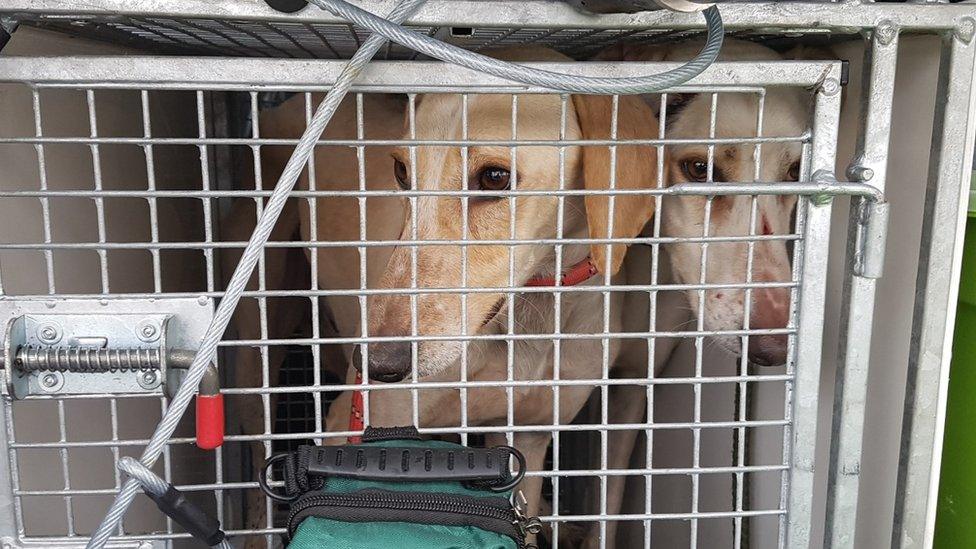
Lincolnshire Police said the policy had led to a significant reduction in the number of cases
The number of reports of hare coursing in Lincolnshire has significantly decreased due to a policy of seizing dogs, police said.
Officers seized 76 dogs between September and March 2017-18, as part of operations to disrupt the illegal activity.
Lincolnshire Police said the number of reported incidents fell from 1,175 in 2017/18 to 686 in 2018/19.
A further 49 dogs have been seized since September 2018, the force added.
Ch Insp Phil Vickers, of Lincolnshire Police, said: "We know this prevents offending and is recognised as being the most effective tactic we use."
He said officers were also actively targeting those who had "caused most harm in the past".
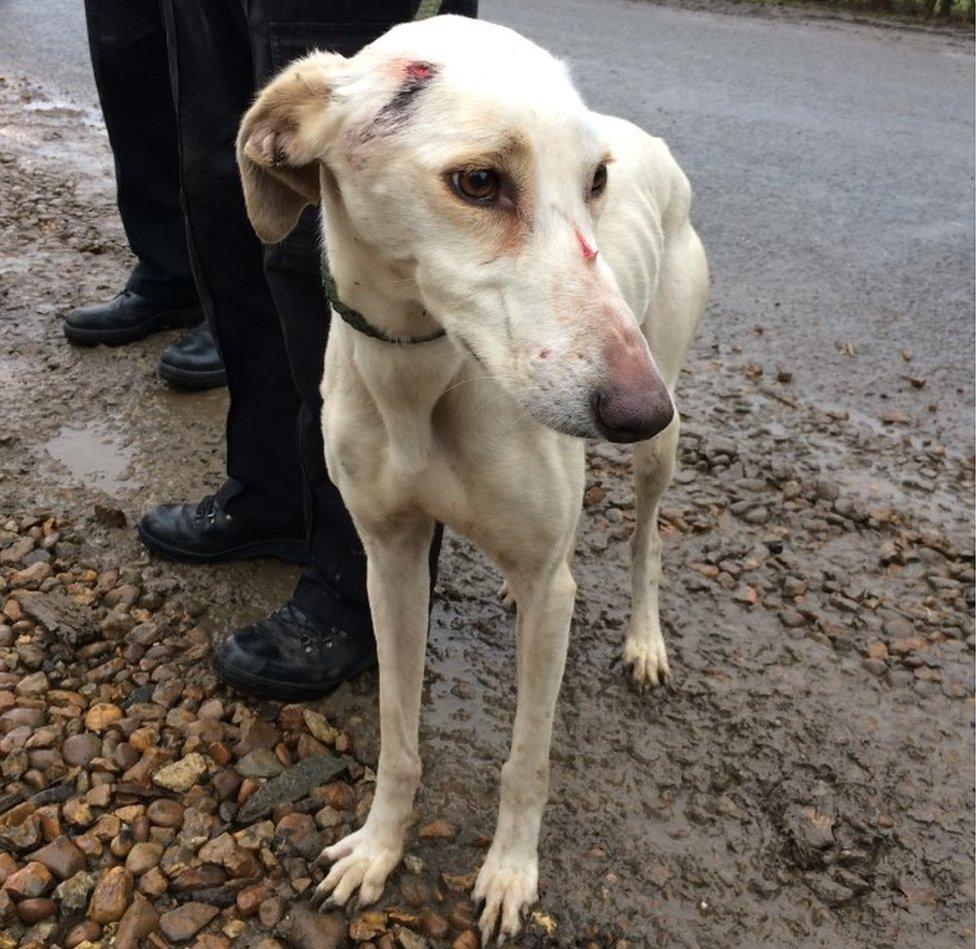
Lincolnshire Police is also considering asking staff to foster the seized dogs
However, Mr Vickers said there was a financial impact on the force in paying for the animals to be housed in kennels.
As a result, he said, the force was considering asking staff to foster the animals, pending the outcome of court action.
The force said the use of technology such as drones was also having an impact on catching offenders.

Hare coursing
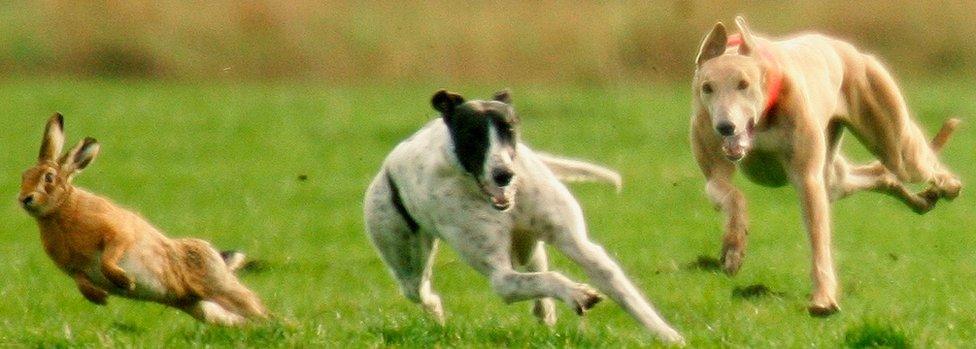
Coursers often use binoculars to spot hares
Dogs - usually greyhounds, lurchers or salukis - are on a slip lead threaded so it can be easily released
Coursers will walk along the field to frighten the hare into the open
The dog catches the hare and kills it by "ragging" it - shaking the animal in its teeth
The dead hare is usually left in the field or thrown in a ditch
Since 2005, hare coursing has been illegal throughout the UK
Source: Lincolnshire Police

- Published25 December 2018
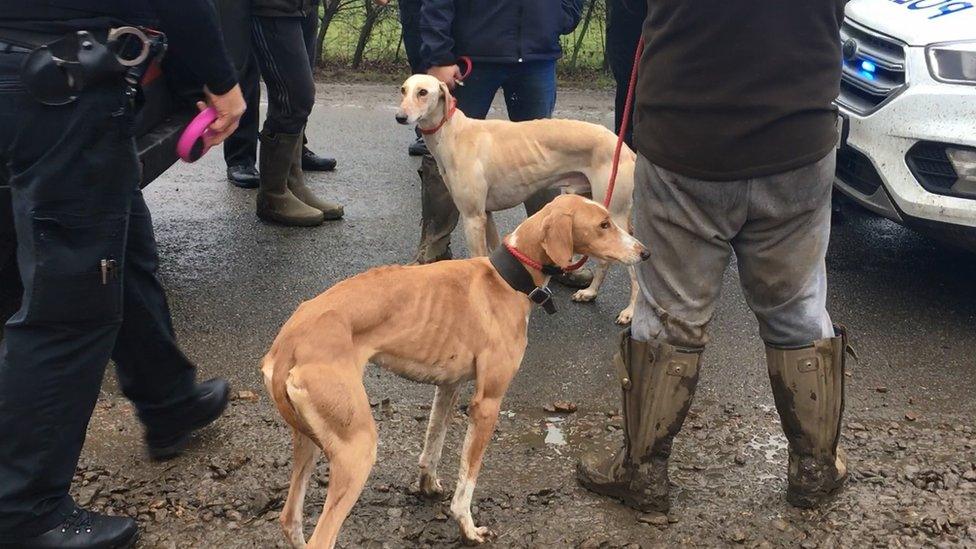
- Published28 December 2017
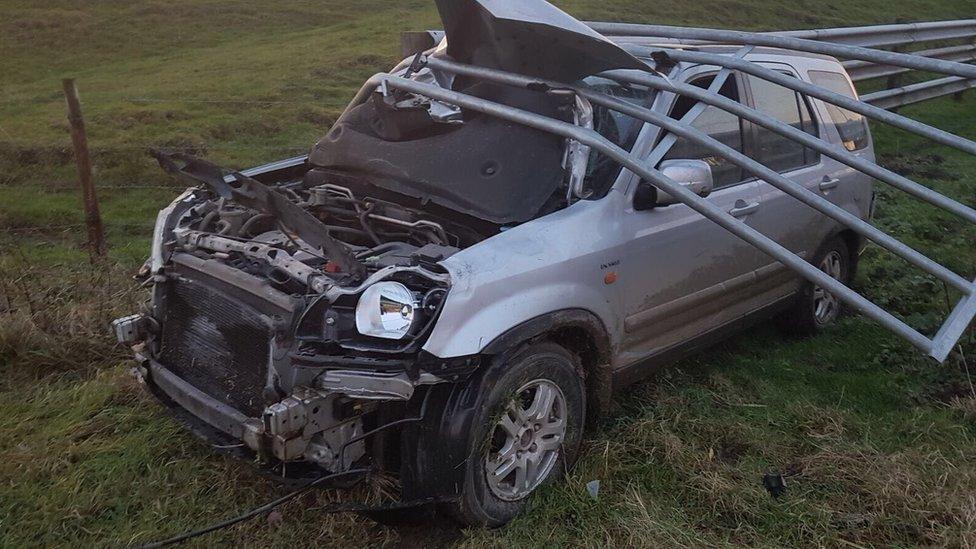
- Published22 December 2017

- Published2 October 2017
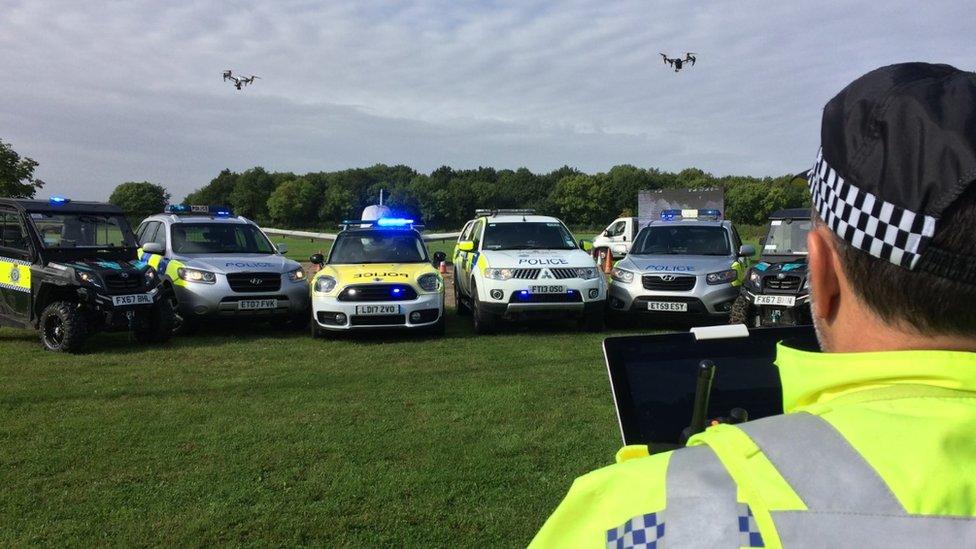
- Published21 January 2017
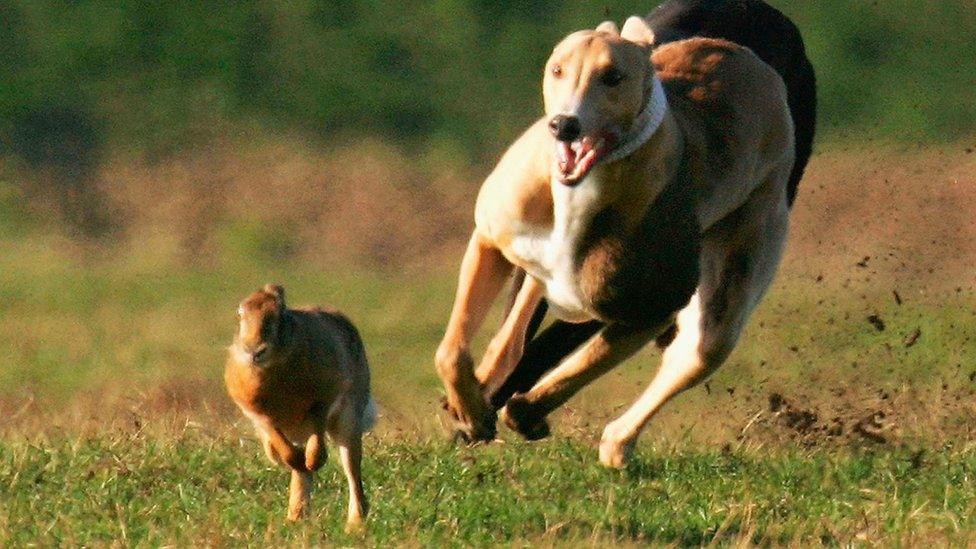
- Published6 January 2017

- Published30 November 2017
